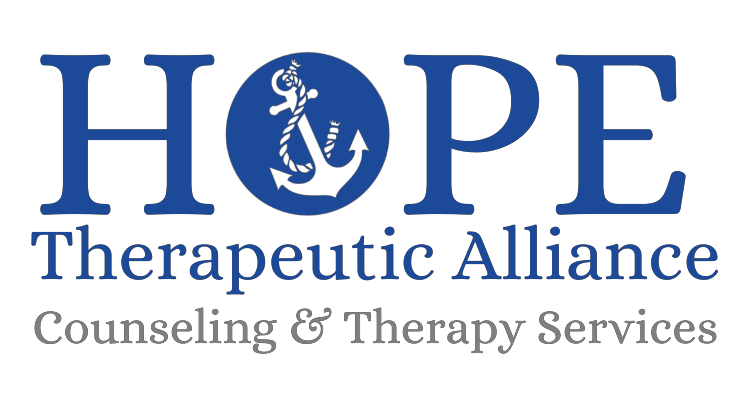Finding the Right Fit for Counseling in San Antonio
Let's talk counseling. You take the leap, schedule that first appointment, and walk into a room filled with…well, maybe not sunshine and rainbows, but hopefully, a sense of hope and possibility. You're ready to address some challenges in your life, and starting counseling feels like a step in the right direction.
But what happens if, after a few sessions, that feeling of hope starts to fade? Maybe you don't feel a connection with your counselor, or you're not seeing the progress you'd hoped for. It's totally normal to wonder if counseling is "working" and even more normal to question if you've found the right fit with your counselor.
Counseling is a journey, and finding the right counselor is crucial to making it a successful one, because the therapeutic relationship is the foundation of effective therapy. A strong, trusting connection between you and your counselor creates a safe space where you can openly explore your thoughts, feelings, and experiences without fear of judgment. When you feel understood and supported, you’re more likely to engage fully in the process, which is key to making progress.
The right fit also means that your counselor’s approach, style, and expertise align with your specific needs and goals. Different counselors have different therapeutic techniques and areas of specialization, so finding someone who resonates with you personally and professionally can significantly enhance the effectiveness of your sessions. A good fit allows for better communication, mutual respect, and a collaborative partnership, all of which are essential for fostering growth and achieving meaningful change in counseling.
What are signs that the counselor-client relationship might not be the best fit:
· Lack of Comfort or Trust: If you feel uneasy, judged, or misunderstood during sessions, it may be difficult to open up and engage fully in the therapeutic process. Trust and comfort are key to a productive counseling relationship.
· Poor Communication: If your counselor doesn’t listen carefully, interrupts frequently, or dismisses your concerns, it can hinder progress. Effective communication is essential for feeling heard and validated.
· Mismatch in Approach: If your counselor’s therapeutic approach or style doesn’t align with your needs or preferences, it can create frustration. For example, if you prefer a more structured approach and your counselor is very relaxed and non-directive, counseling sessions might not feel productive.
· Lack of Progress: If you’ve been in counseling for a while and don’t feel like you’re making any progress, it might be a sign that the counselor’s methods aren’t effective for you. It’s important to feel that you’re moving toward your goals.
· Feeling Unseen or Invalidated: If your counselor consistently overlooks or minimizes your experiences or emotions, it can leave you feeling unsupported.
· Ethical Concerns: Any behavior that feels unprofessional, such as breaches of confidentiality, inappropriate comments, or crossing personal boundaries, is a clear sign that the counselor is not a good fit and possibly unethical in their practice.
· Dreading appointments: You find yourself dreading your counseling sessions or canceling frequently.
What to do when your counselor is not a good fit:
· Reflect on Your Experience: Take some time to think about what specifically isn’t working for you in the therapeutic relationship. Identifying the issues can help you decide how to address them, whether it’s a mismatch in communication style, a lack of progress, or something else.
· Communicate Your Concerns: If you feel comfortable, discuss your concerns directly with your counselor. They may not be aware of how you’re feeling, and sometimes adjustments can be made to better meet your needs. This conversation can also be an opportunity to clarify expectations and explore whether the relationship can be improved.
· Consider Your Options: If after discussing your concerns you still feel that the fit isn’t right, it may be time to consider finding a new counselor. Counseling is a personal process, and it’s important to work with someone who you feel comfortable with and who understands your needs.
· Seek a Second Opinion: If you’re unsure whether your experience is normal or if another counselor might be a better fit, you might want to seek a second opinion from another mental health professional or a trusted friend. This can provide perspective and help you make a more informed decision.
· Transition to a New Counselor: If you decide to switch counselors, take the time to research and find someone who better aligns with your needs and preferences. You can ask for recommendations, read reviews, or consult with potential new counselors to gauge whether they might be a better match.
· End the Relationship Professionally: If you choose to move on, it’s important to end the counseling relationship professionally. Explaining that you’re seeking a different direction can offer necessary closure and enhance self-advocacy skills. Most counselors understand that finding the right fit is crucial and will support your decision to transition to someone else.
At HOPE, we understand that finding the right counselor is essential. We have a team of experienced counselors with diverse backgrounds, specializations, and therapeutic approaches. Here's what we offer:
Free consultations: Get to know one of our counselors before committing to ongoing sessions. This allows you to see if there's a good fit in terms of personality and approach.
Matching you with the right counselor: We take the time to understand your needs and goals and match you with a counselor specializing in the areas you want to address.
Variety of therapeutic approaches: We offer a variety of therapy styles, including CBT, EMDR, mindfulness-based therapies, and more. This allows you to explore different options and find what works best for you.
Counseling is a powerful tool for growth and healing, but it only works if you feel safe, supported, and understood. If you're not clicking with your current counselor or desire to find a good fit as you begin counseling, contact us for a free 15-minute consultation.


